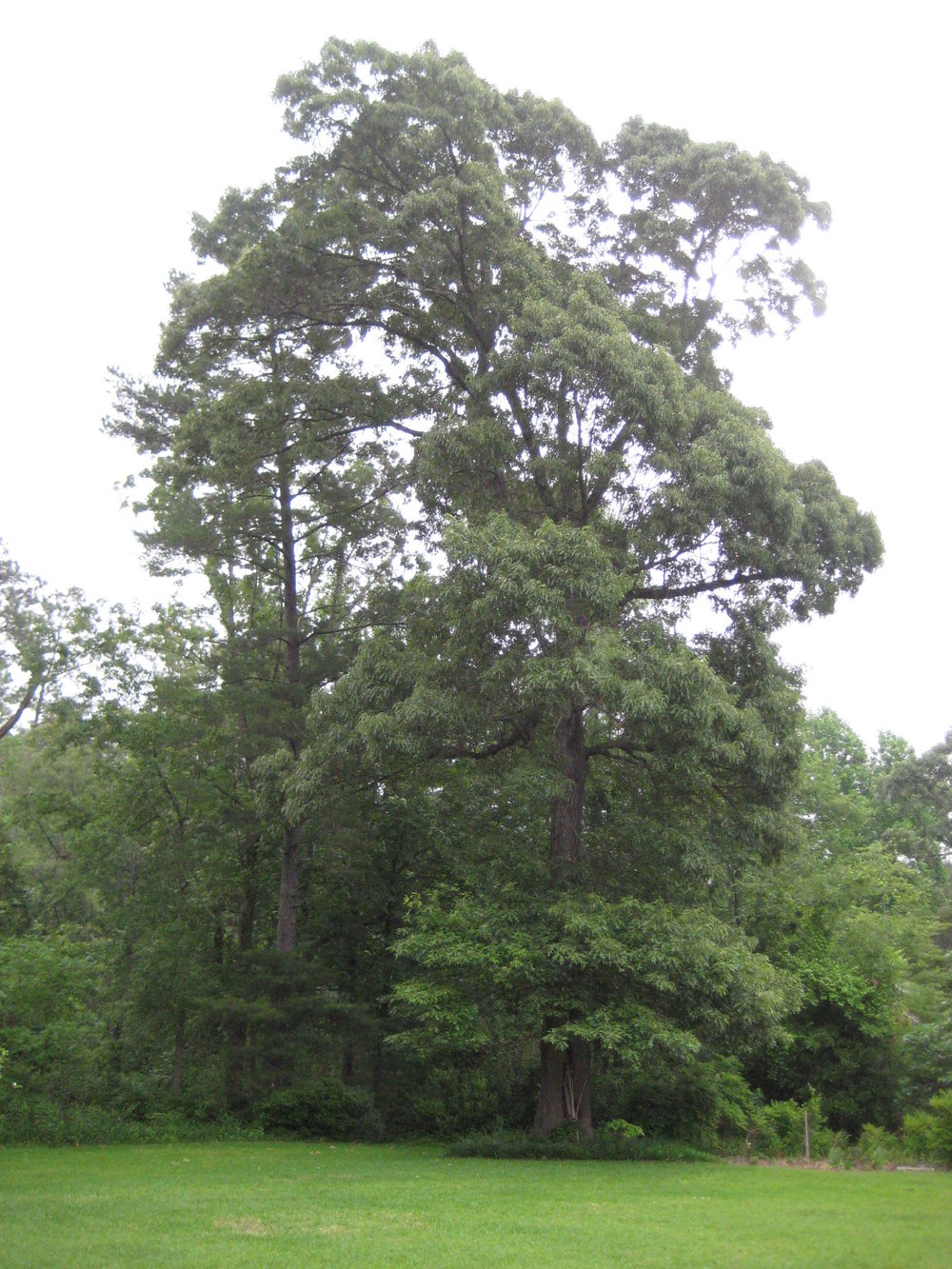
As you might guess if you have frequented this blog often, it was in Mama’s repertoire. I didn’t hear the sing-song that critics of the poem abhor in her voice. Instead, I visualized the imagery, inserting my own favorite tree into the picture. As for the sentiment, what point is there in a poem that fails to evoke feeling, even blatant feeling, as you find in “Trees”?
Who would have known that my husband’s first official duty assignment would be to Camp Kilmer, New Jersey, named for the state’s famous poet? Once the largest processing center for troops heading overseas and returning from World War II, the camp was in the process of closing as an active duty station. We were there for its last six months and lived just outside the Rutgers University campus with its centuries-old oak tree said to have inspired the poem. As might be expected, there are other claims for different trees!
Perhaps the greatest factor in my wanting to rescue the poem is many years of seeing wonderful trees and sharing Kilmer’s emotions in the wonder of it all – leafy arms lifting to pray, wearing of robins in the hair, and living intimately with rain. My current favorite tree, the oak pictured in our back yard, seems to do all of these. We’ve been told for the twelve years we’ve lived here that it is flawed and will die soon or topple in the next bad storm. The tree missed this word and stood strong during Katrina when others were falling all around it and never noticed the tornado that made a track of destruction less than half a mile away. The squirrels running along its branches seemed to have missed the news as well.
Thinking to myself, it seems that one should not have to make a poetry choice. There’s room in this world for the old standards of Kipling, Longfellow, Coleridge, and “Trees” as well as some of the new poets who make words sing without rhyme. (Sharon Gerald with her volume Thin Is the Kingdom comes to mind.) Their words call up empathetic feelings much like those rhymers of old. Other new poets seem to have thrown a bunch of words in the air just to see where they land when they come down. I would even make room for them.
When assigned to memorize a poem, children have frequently chosen “Trees.” Perhaps it’s because they looked forward to that fun and easy last line, “Poems are made by fools like me, but only God can make a tree.” I advocate enjoying both beautiful trees and poems by “fools” like Joyce Kilmer.